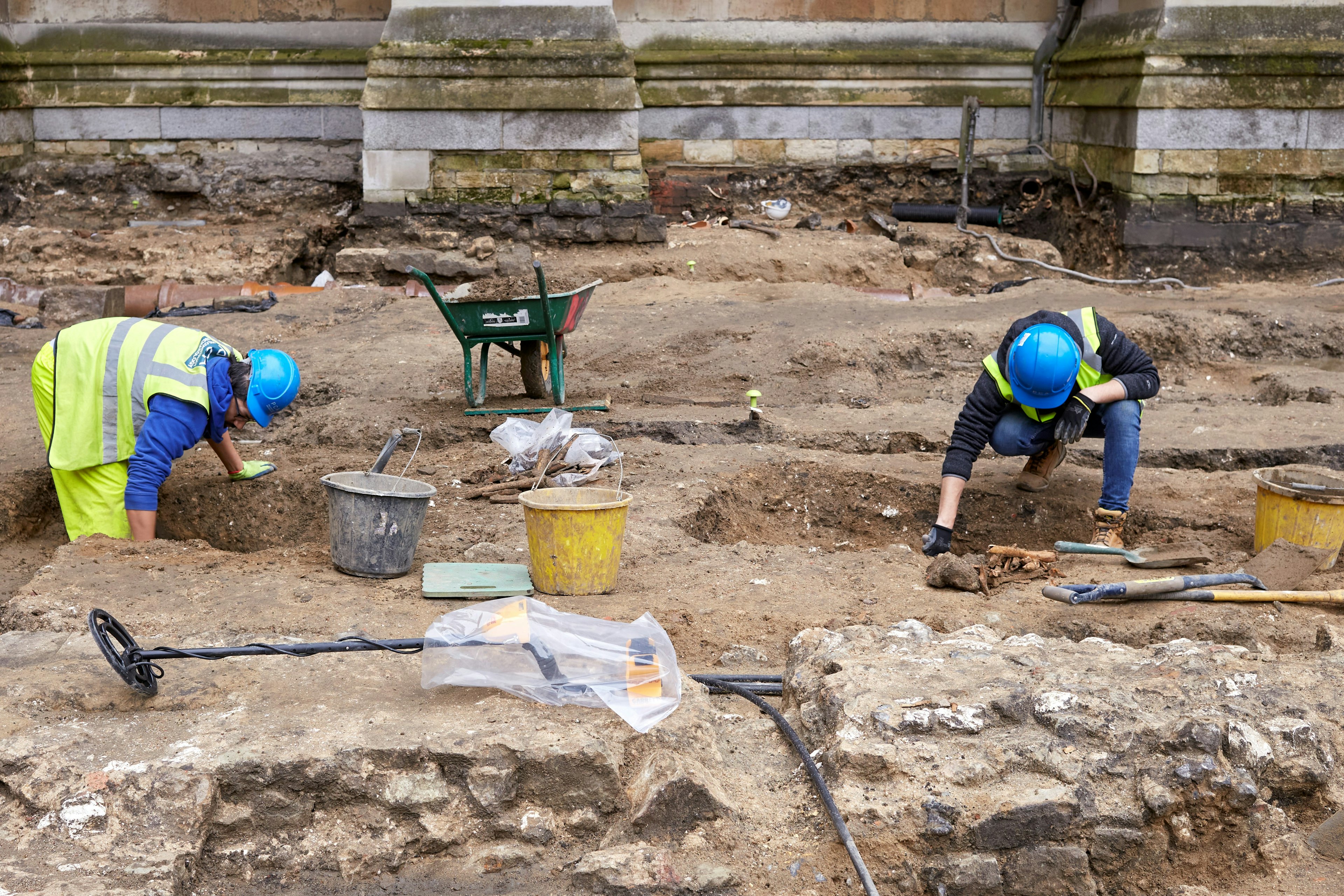
Long-lost medieval sacristy is unearthed at Westminster Abbey

Sep 2, 2020 • 2 min read
- placement: fullWidth
- path: articles/in-content-top
- possible size: [970, 250], [970, 90], [728, 90], [300, 250], [320, 50], [1, 1],
- targeting:
{ "url": "westminster-abbey-medieval-sacristy", "destination": "London", "continent": "Europe", "country": "England", "city": "London" }
A long-lost 13th-century sacristy and hundreds of skeletons have been unearthed on the grounds of London’s Westminster Abbey. The find comes amidst one of Westminster Abbey’s largest archaeological projects, which is excavating ground on the North Green, which sought to uncover the sacristy’s foundations.

- placement: fullWidth
- path: articles/in-content-middle
- possible size: [970, 250], [970, 90], [728, 90], [300, 250], [320, 50], [1, 1],
- targeting:
{ "url": "westminster-abbey-medieval-sacristy", "destination": "London", "continent": "Europe", "country": "England", "city": "London" }
The sacristy is the area where monks and priests prepare for the service, and it houses the robes, altar linens and sacred items used during Catholic Mass. King Henry III constructed this part of Westminster Abbey in the 1250s during a huge restoration project of the original building from the era of Edward the Confessor in the eleventh century. Most of what visitors to Westminster Abbey see today is the reconstruction work from Henry III, but the medieval sacristy was demolished in 1740 after being remodelled into a house that later fell into disrepair. Before the sacristy was built, the ground was used for burials of monks, and the excavation team has found at least one skeleton that’s well preserved.
Other archaeological finds include hand-painted wall plaster, lead piping and china plates. A few items that once had noble purposes were relegated to the scrap heap and then reused in the medieval foundations, including a hand-washing basin used by Edward the Confessor-era monks and even a sarcophagus that had the body removed and was reused as a drain.
- placement: native
- path: articles/in-content-native
- possible size: [f, l],
- targeting:
{ "url": "westminster-abbey-medieval-sacristy", "destination": "London", "continent": "Europe", "country": "England", "city": "London" }

The officials at Westminster Abbey launched the excavations as they look to add a building for ticketing and security on the medieval site. A splendid mixture of architecture, Westminster Abbey is considered the finest example of Early English Gothic style. It's not only a beautiful attraction for tourists: the Abbey is still a working church. For centuries, the country's greatest have been buried here, including 17 monarchs from King Henry III (1272) to King George II (1760), and nearly every monarch since William the Conqueror has been crowned here.
You might also like:
Remote volunteers discover archaeological sites galore in lockdown
Stone Age artwork discovered in a cave in Catalonia
Take a virtual drone tour of the fascinating new excavations in Pompeii
- placement: fullWidth
- path: articles/bottom
- possible size: [970, 250], [970, 90], [728, 90], [300, 250], [320, 50], [1, 1],
- targeting:
{ "url": "westminster-abbey-medieval-sacristy", "destination": "London", "continent": "Europe", "country": "England", "city": "London" }
Explore related stories

History
Tutankhamun's treasures are heading to Boston as part of a sell-out world tourFeb 12, 2020 • 2 min read




 Festivals & Events8 of the best cities in Europe to celebrate New Year’s Eve
Festivals & Events8 of the best cities in Europe to celebrate New Year’s EveNov 6, 2024 • 7 min read




